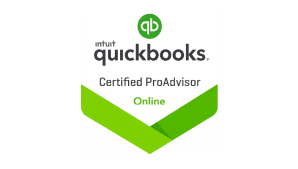ISLAMABAD:
The government has raised the minimum price of sugar for sales tax calculation, potentially increasing retail prices by Rs10 to Rs15 per kilogram. This move, implemented through a new Federal Board of Revenue (FBR) notification, aims to generate an extra Rs90 billion annually to address a widening revenue shortfall.
The updated statutory regulatory order (SRO) replaces the old rate of Rs72.22/kg with a dynamic pricing model tied to the Pakistan Bureau of Statistics’ (PBS) weekly Sensitive Price Indicator. The new minimum taxable price, effective until April 15, is set at Rs126/kg — a 75% jump from the earlier benchmark. Some sugar mills were already paying taxes based on Rs100–Rs110/kg.
Under the formula, the minimum price — including sales tax — will be the national average retail price published by PBS before the 1st and 16th of each month, minus Rs16. Based on PBS’s last reported rate of Rs168.80/kg, the ex-factory taxable price is now Rs152.80, resulting in a tax of Rs28/kg. This contrasts with the prior Rs13–Rs18 charged on the old price range.
The FBR noted the new policy supersedes the 2021 order and introduces uniformity, claiming mills were still using outdated pricing due to the FBR’s own delay in revising rates.
Special Assistant to the Prime Minister on Industries, Haroon Akhtar Khan, maintained that the new base price wouldn’t affect market rates, citing agreement from the sugar mills association. He explained that previous sales tax was based on varying sale prices across mills and regions.
An FBR official revealed that Rs118 billion in sales tax was collected last year on sugar priced at Rs72.22–Rs100/kg. With the updated pricing, projected tax revenue is at least Rs208 billion. Despite this, sugar millers argued that most were already taxed at Rs100/kg and expect only Rs15–Rs20 billion in new revenue.
Additionally, the government collects Rs15 per kg in federal excise duty on sugar sold to manufacturers and commercial entities, which brought in Rs9 billion in the first nine months of FY24.
Dr. Najeeb Memon, FBR spokesperson, confirmed the implementation of the new tax structure for the sugar industry.
With a revenue shortfall of Rs714 billion in the first nine months of FY24, the FBR is under pressure. Although the IMF allowed a downward revision of the annual revenue target from Rs12.97 trillion to Rs12.33 trillion, concerns remain about meeting even this reduced goal.
In March, the government set the retail price of sugar at Rs164/kg, marking a 13% increase since it permitted the export of 795,000 metric tonnes. This benefited millers through higher revenues in both domestic and foreign markets, with each Re1 increase translating into Rs2.8 billion in additional gain.
Separately, a U.S. Trade Representative report highlighted Pakistan’s excessive use of SROs for sector-specific benefits, which led to the imposition of 29% extra duties on Pakistani exports. The report noted that despite IMF commitments to limit SROs, Pakistan has not committed to phasing them out.





